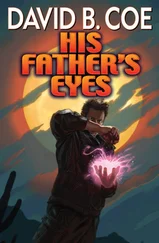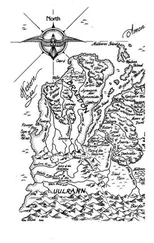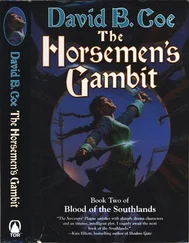A few years ago, such a thought would never have crossed DCI Capes’s mind. While the occasional sensational case might have called for a broadcast press conference, received wisdom held that the majority of police work was best conducted in private, well away from the media’s hungry, intrusive glare. But all of that had changed now. A series of high-profile arrests of British disc jockeys and light entertainment stars of the 1970s on charges of historic sexual abuse had brought DCI Capes into direct and exhilarating contact with top journalists from television, radio and the newspapers. Better still, these arrests had brought him into contact with the stars themselves, a development in his career which he could never possibly have foreseen, and which filled him with a sort of childlike, or at least adolescent, wonder. DCI Capes was in his early fifties. When he was a teenager, many of these celebrities had been, if not heroes to him, at the very least objects of awe and curiosity. In those days he had kept an autograph book, which was filled with the signatures of second-rate TV comics encountered at the dismal seaside holiday camps to which his parents would take him during the summer holidays, and with scribbled messages (‘Keep on rockin’!’, ‘Have a poptastic birthday!’) from disc jockeys he had queued to meet at special local events like Radio One Roadshows or the opening of a new supermarket. Now, more than thirty years later, he still struggled to comprehend that his latest role was to be photographed alongside these same figures as they were led, grizzled, bearded and bewildered, in and out of court rooms to testify in cases of alleged sexual assault which they (if not their victims) could barely remember. Truly, time played the strangest tricks.
But it was a few months since Capes of the Yard (a feeble, feeble nickname, he reflected, for the thousandth embittered time) had been involved in one of these cases. It was a few months since his name, let alone his face, had been in the papers. It was a few months since he had felt the power of life and death over a prominent figure in public life. He was aching to get back to it — and this was a fantastic opportunity. In this instance, show business met journalism in a heady, intoxicating cocktail. A national newspaper editor so sensitive to personal insult that it made him violent towards those who criticized his daughter. An Achilles heel that might easily — it was not too great a leap of the imagination — make him commit murder (or arrange to have it committed) when he discovered that there were comedians who had dared to pour scorn upon her for the sake of an easy laugh. Frankly, it couldn’t be better. So what if nothing was certain, at this stage? Speculation and innuendo made far better copy anyway.
‘So.’ PC Pilbeam leaned forward expectantly. ‘What will your next move be?’
DCI Capes pursed his lips. ‘It could be that this is too big for us to handle alone. We’ll have to call in some specialists.’
‘Forensics? MI5? Special Branch?’
‘No — I’m talking about a PR firm. Pott Bellinger, I think — they’re the best in the business. We use them a lot to liaise with the media.’
PC Pilbeam did not like the sound of it. ‘Before you say anything to the press,’ he cautioned, ‘I think you ought to take a look at this. It came out just a couple of days ago.’
From his document wallet he produced a DVD. The cover showed a young, tousled, slightly overweight white man wearing a large brightly coloured shirt which was untucked at the trouser. He was talking into a microphone. The DVD was entitled Ryan Quirky — Whimsy A-Gogo — Live and Loquacious .
‘Thanks all the same,’ said DCI Capes, sliding it back across the table, ‘but I’m not really a comedy fan myself. I prefer a good Britflick. Something with Ray Winstone or Danny Dyer.’
‘No — I mean, this is relevant to the case,’ said Nathan. ‘Extremely relevant. Start watching after forty-two minutes.’
‘You mean it’s another attack on …?’
‘Ms Winshaw-Eaves? Yes, it is. Not a severe one. Quite mild, by comparison with the others. But still, if I were Mr Quirky, I would be checking that my doors and windows were locked before going to bed at night.’
Looking back on his conversation with DCI Capes, Nathan could not help thinking that it had some disturbing features. It was not just his superior’s eagerness to go public with the case at the earliest opportunity: PC Pilbeam was equally disturbed by his own willingness to accept at face value the assumption that Josephine Winshaw-Eaves provided the only possible link between the two murders. Perhaps there was more to it than that? Was the fact that both of the deceased comedians had insulted her nothing more than a distracting coincidence?
Above all, what was starting to alarm him was that, in drawing this premature conclusion, he had betrayed his own philosophy. All he had done, so far, was to watch three DVDs and notice that they had something in common. What they had in common was, of course, potentially very significant, but all the same, his methods had hardly been exhaustive or rigorous. Wasn’t he meant to be England’s first truly intellectual criminal investigator? Didn’t he believe that every crime was best solved by reference to its social and political context? That cultural theory and moral philosophy could often point the way to a solution more surely than fingerprints on a window frame or footprints on a garden path? It was time to do some reading.
And so, for the next five days, PC Pilbeam rarely left his study.
He was surprised, initially, to find that so little had been written on the history and philosophy of humour. Apart from a few scattered comments from Plato, Aristotle and Cicero, the ancient writers had not found very much to say on the subject. The earliest significant commentator in the English language had been Thomas Hobbes, who agreed with René Descartes that laughter derived from pride and was an aggressive expression of superiority over one’s peers. Immanuel Kant was one of the first philosophers to offer an incongruity theory of humour, asserting that ‘laughter is an affection arising from the sudden transformation of a strained expectation into nothing’, leading to ‘a feeling of health produced by a motion of the intestines’. Kierkegaard had broadly concurred, maintaining that comedy was born of contradiction, although in this case it was a ‘painless contradiction’ rather than the ‘suffering contradiction’ of tragedy. Henri Bergson, on the other hand, had gone back to the superiority theory of humour and refined it, declaring that we laugh at other people when we perceive in them ‘ une certaine raideur de mécanique là où l’on voudrait trouver la souplesse attentive et la vivante flexibilité d’une personne ’. Only a few years after this, Freud had published his seminal Jokes and Their Relation to the Unconscious , proposing a theory which seemed to be the most penetrating and persuasive of all. The punchline of a joke, Freud believed, created a sort of psychic short cut, transporting us rapidly from one idea to another by a quick and unexpected route which thereby allowed an ‘economy of psychic expenditure’, a saving of mental energy which would then be expelled in an explosive outburst of laughter.
Nathan read through all these various explanations carefully, highlighting the most suggestive passages and making detailed notes. He realized that very few commentators had specifically addressed the topic of satire or political humour, although he did come across a dismissive observation by Milan Kundera: Kundera, it seemed, looked down upon satire as a ‘thesis art’ which sought to shepherd its audience towards a preconceived political or moral position, falling short of what he saw as the real purpose of artistic creation, which was to make people aware of ambiguity and multiplicity of meaning.
Читать дальше












